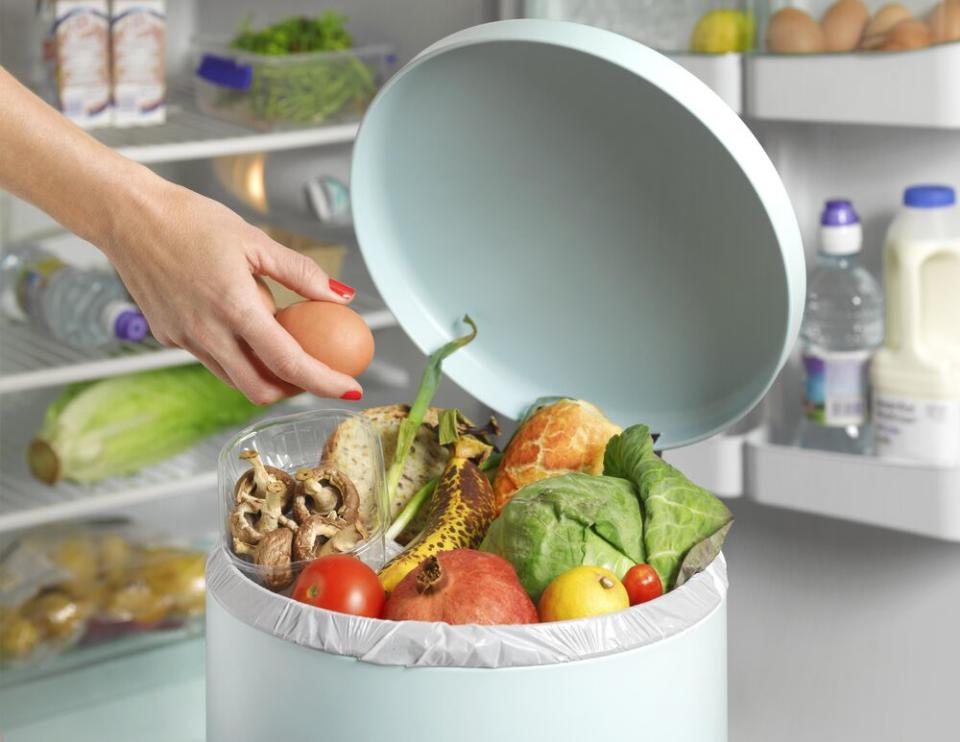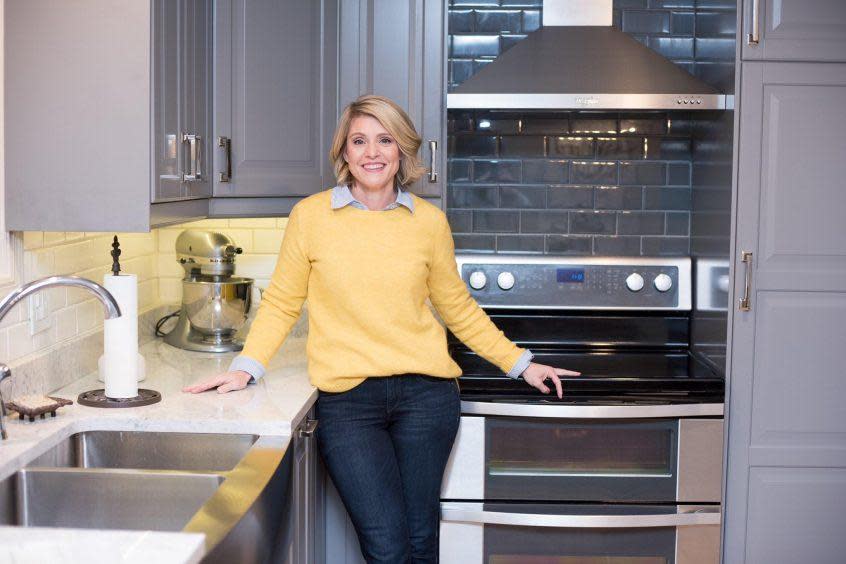Top 5 Benefits of Meal Planning, According to An Expert
According to a 2016 consumer survey by The Hartmann Group, 53% of dinners are planned within an hour of eating them.
Sitting down to a home-cooked meal is something I never regret doing. But getting into the kitchen after working all day isn't usually a task that I'm dying to do. The one thing that makes it easier—and significantly more likely to happen—is meal planning. I've found that taking just 30 minutes before I grocery shop sets the tone for smooth sailing in the kitchen all week, and not just from a health perspective. There are actually several other perks you may not have considered. That's why I dug into the research around meal planning: to let you know how much your life can be improved by just setting aside a little time to game plan. Here are five of the top benefits to meal planning.
#1: You're more likely to reach health goals.
You've probably heard that meals cooked at home are typically lower in calories compared to eating in or picking up from restaurants. But did you know that they also tend to have more fiber and vegetables, fewer carbohydrates, and less sodium, sugar, and saturated fat? In fact, overall diet quality increases as the number of weekly meals prepared at home goes up. This is why individuals who regularly prepare meals at home are more likely to have less body fat, a lower risk of developing Type 2 diabetes, and even a longer lifespan! Cooking meals at home increases your chance of reaching health goals, no matter if those are to lose weight, improve heart health, or keep blood sugar in check. And meal planning is what gives you ingredients and resources to actually make this happen on a daily basis.
Reach your health goals with delicious meals and minimal stress! Subscribe to the Cooking Light Diet today and start receiving customizable meal plans featuring thousands of mouthwatering recipes.
#2: It saves you LOTS of money.

It's a no-brainer that cooking at home saves money, but I was shocked to discover just exactly how much. A 2018 Forbes article compared the average cost per serving of preparing over 80 popular dinner recipes at home to the cost per serving of that same dish purchased from a restaurant or a delivered meal kit. The study found that it costs five times more to order that dish from a restaurant than it does to cook at home, while meal kits were a little less expensive at around three times the cost. The savings are substantial when you add this up over a month. Meal planning makes it easier to cook more consistently at home, and savvy shoppers can save even more by incorporating weekly sales into planning. So the next time you're budgeting for a trip or expense, consider meal planning to help save you money month over month.
#3: It enables variety and gives you control.
Meal planning is associated with increased food variety, a key component of a healthy diet that increases the likelihood of meeting nutrient needs and making healthy eating a lot less dull. Perhaps even more importantly, cooking at home also gives you control and choice over ingredients. It's easier to avoid problematic food allergens and to incorporate ingredients that support diets for your specific health, such as low carb, vegetarian, and dairy-free or gluten-free diets. You also have the ability to work in seasonal, local produce, or ingredients farmed with certain practices. In short, the applications for menu variety are limitless when you're the one doing the mean planning.
Want more variety in your mealtimes? Subscribe to the Cooking Light Diet today and start receiving customizable meal plans featuring thousands of healthy, delicious recipes.
#4: Meal planning streamlines shopping and decreases food waste.

It wasn't unusual for me to make a grocery run two or three times per week pre-coronavirus. Either I forgot items, or I didn't get enough on my initial trip to make it through a week. But things changed in 2020. Now, creating a grocery list based around a meal plan is the only way I manage to get everything I need in a single trip. Not only does that reduce the time I spend risking potential exposure to coronavirus at the grocery, but it saves me money I'd otherwise use on gas to make all the extra trips back and forth to the store.
An additional benefit to meal planning is that I've found I'm more likely to use what I have on hand, like canned goods, dry grains, and other forgotten pantry items. I'm also more cognizant about using up perishables before they go bad, as well as finding creative ways to use open condiments in my refrigerator, like pesto. Rather than spending money on food I don't have, meal planning helps me reduce food waste and mitigate needless shopping trips by utilizing what's already on hand. Bonus! Planning and cooking my meals at home also means I have leftovers, so I don't always need to purchase as many lunch ingredients.
Streamline shopping and decrease food waste! Subscribe to the Cooking Light Diet today.
#5: Meal planning prevents decision fatigue.
Want to know what I consider the biggest perk of meal planning for my life? I don't have that nagging, late-afternoon stress associated with deciding what to do for dinner. I know that may sound silly—especially when comparing that to the health, financial, and food waste benefits—but decision fatigue is a real thing. And for this working parent, it's something that adds stress and anxiety to my day, which I most definitively do not need more of. But meal planning helps me alleviate that fatigue. So when I'm not particularly motivated on Sunday to take 30 minutes to meal plan before I shop, I stop to think about how much easier afternoons are when I already have ingredients stocked with a plan on how I'll use them up. It also keeps me from having to repeatedly answer the "Mom, what's for dinner?!" question since our weekly menu is posted on the fridge.
To sum it up, save yourself a lot of stress, time, and money by adapting a meal plan to your weekly routine in 2021. The results will surprise you.
Want customizable meal plans for breakfast, lunch, snack, and dinner to help save you time, money, and stress? Subscribe to the Cooking Light Diet today!

Carolyn Williams, PhD, RD, is the author of Meals that Heal: 100+ Everyday Anti-Inflammatory Recipes in 30 Minutes or Less, and a culinary nutrition expert who specializes in simplifying food and nutrition information. She received a 2017 James Beard Journalism award, and her work is regularly featured in or on respective websites for Cooking Light, RealSimple, Parents, Health, EatingWell, Allrecipes, MyFitnessPal, eMeals, Rally Health, and the American Heart Association. You can follow on Instagram (@realfoodreallife_rd) or on carolynwilliamsrd.com.

